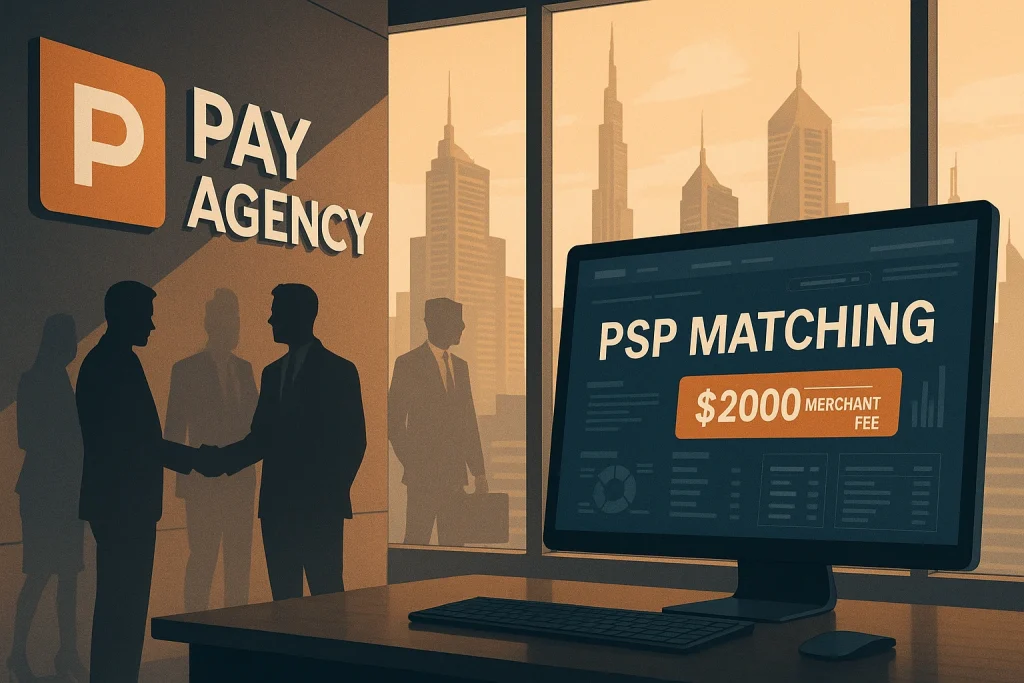A New Venture Emerges in the High-Risk Payments Landscape
Ruchi Rathor, a well-known figure in the Indian high-risk payments space, has reportedly launched a new initiative called Pay Agency. Together with her son-in-law Yuvraj Singh and other family members, Rathor is believed to be based in Dubai, where the family continues to benefit financially from their involvement in numerous payment schemes. Over the past months, frequent complaints have surfaced involving companies such as PayPound, Payomatix, and OpenUp—all linked in various ways to Rathor’s network. The launch of Pay Agency appears to be the next strategic move targeting merchants in the high-risk payment sector.
What Is Pay Agency?
According to publicly available information, Pay Agency positions itself as a service provider that facilitates connections between merchants and payment service providers (PSPs). The company promotes a matchmaking approach based on a proprietary algorithm, aiming to optimize how merchants are paired with PSPs. Additionally, the platform offers a user dashboard with built-in fraud prevention tools and the ability to integrate with third-party CRM and accounting systems.
The project is operated under the domain https://pay.agency and maintains a presence on LinkedIn and Twitter. While its legal entity and licensing details remain undisclosed, it is stated to be operating under Indian jurisdiction, but without regulatory authorization. According to PayRate42, the company currently holds a Black Compliance rating, reflecting elevated risk for merchants.
The individuals publicly associated with Pay Agency include:
-
Ruchi Rathor (LinkedIn)
-
Yuvraj Singh (LinkedIn)
-
Shrishty Mishra (LinkedIn)
-
Sharome Nirmalakumar (LinkedIn)
-
Dinesh JS (LinkedIn)
These names have also been connected with other controversial payment schemes, including CryptoMatix, BitMatix, Kryptova, PayStudio, iPayTotal, and OpenUp.
Onboarding Process and Pricing Structure
Pay Agency asserts that all merchant onboarding is conducted with a Know Your Customer (KYC) verification process, implying that only legally compliant businesses are approved. However, there is no external confirmation of how thorough or consistent this process is.
Their pricing is based on a fixed annual fee:
-
$2,000 per year for merchants
-
$5,000 per year for PSPs
There is no indication that Pay Agency holds or processes customer funds directly, positioning itself solely as an intermediary.
Caution Urged for Merchants and PSPs
Ruchi Rathor’s history with failed or abruptly dissolved payment processors such as iPayTotal and OctaPay raises serious concerns. Many merchants affected by these schemes reported being left without access to their funds. While Pay Agency is being presented as a matchmaking service—rather than a traditional payment processor—the potential for similar issues cannot be dismissed given the track record of those involved.
High-risk merchants often operate in regulatory gray zones and typically have limited legal recourse if problems arise. This environment has historically been exploited by processors who promise solutions but fail to deliver or disappear entirely. Rathor and her team have demonstrated a strong understanding of how to profit from this segment.
Although Pay Agency claims not to manage customer funds, the lack of transparency and the involvement of previously linked individuals necessitate serious caution from all prospective partners.
Submit a Tip
If you possess relevant information about Pay Agency, Ruchi Rathor, or her affiliates, you can confidentially submit it on our website.
Reported by Scam-Or Project.


